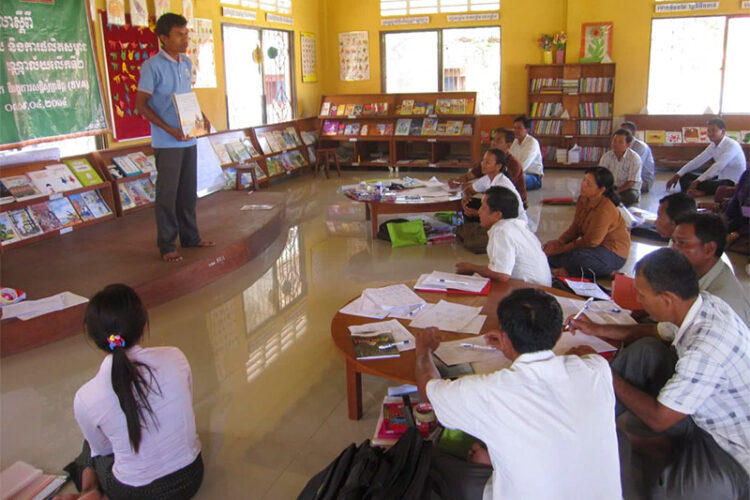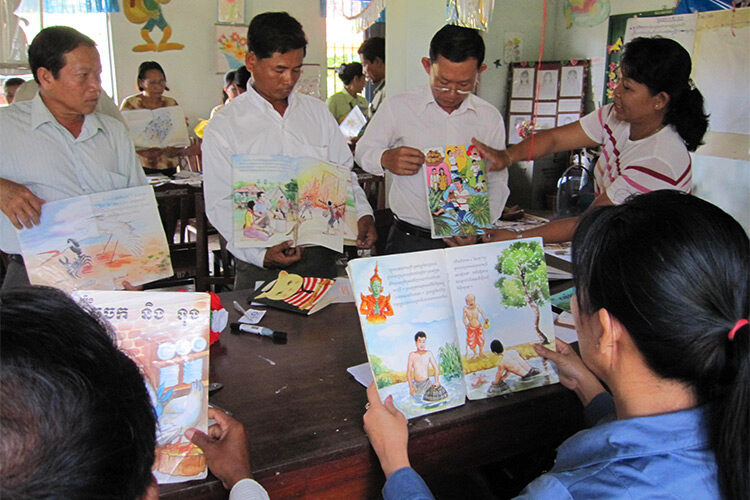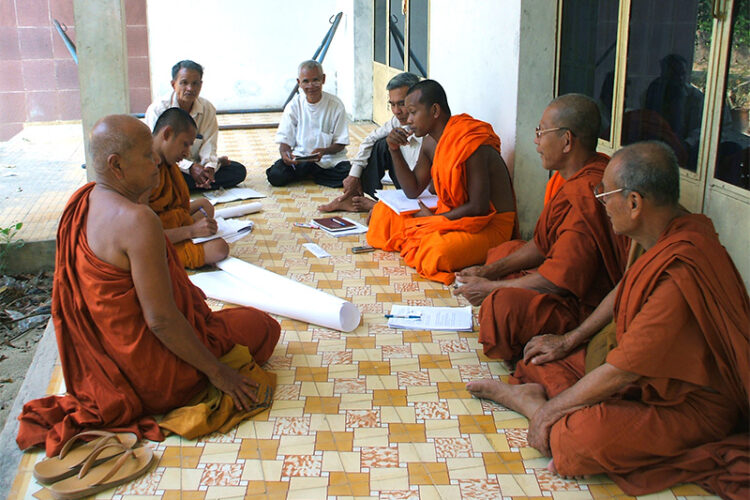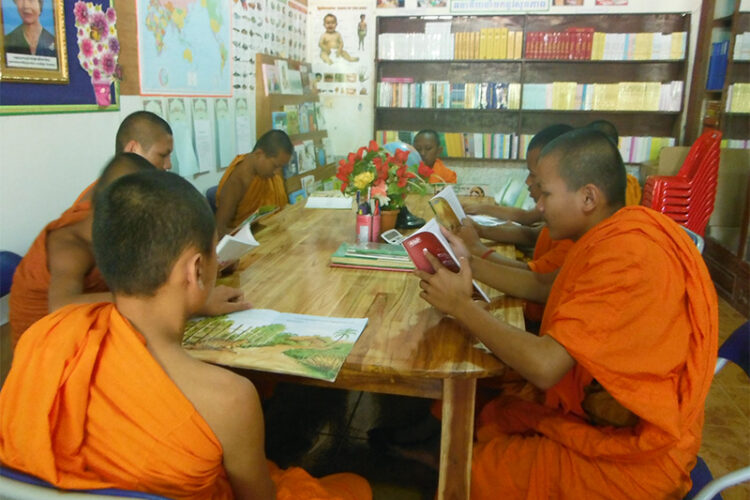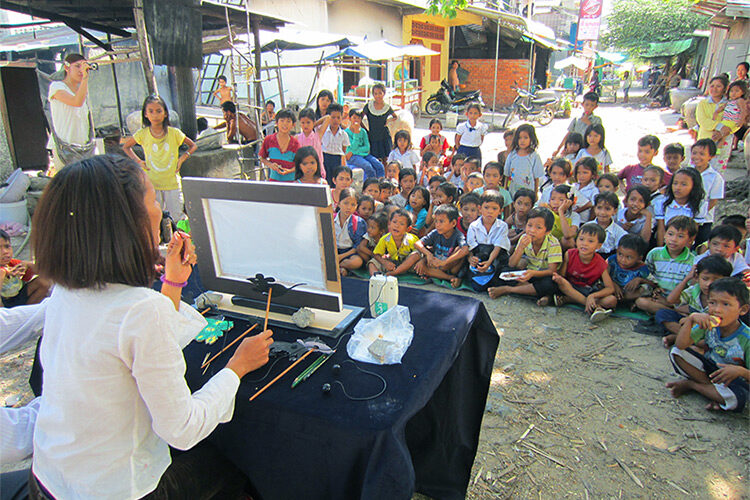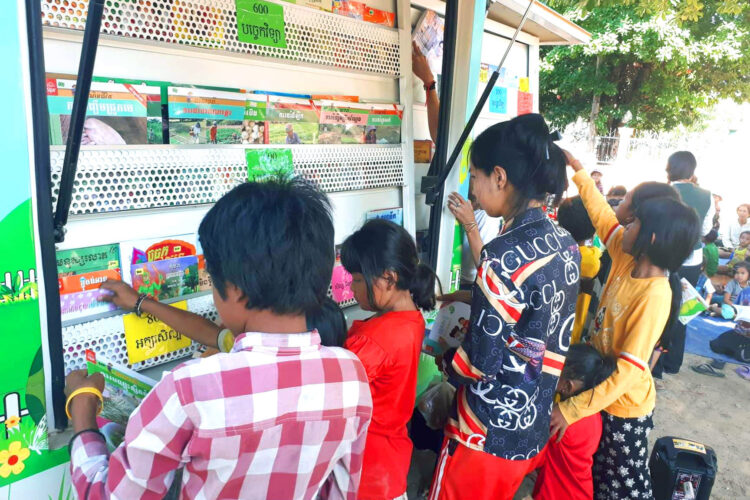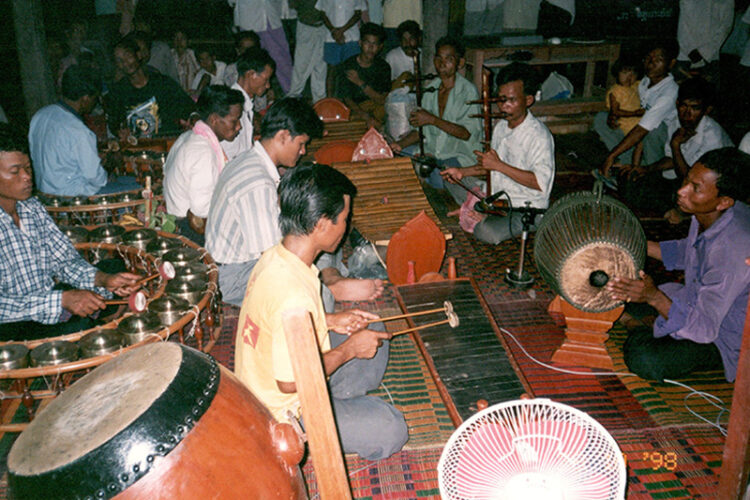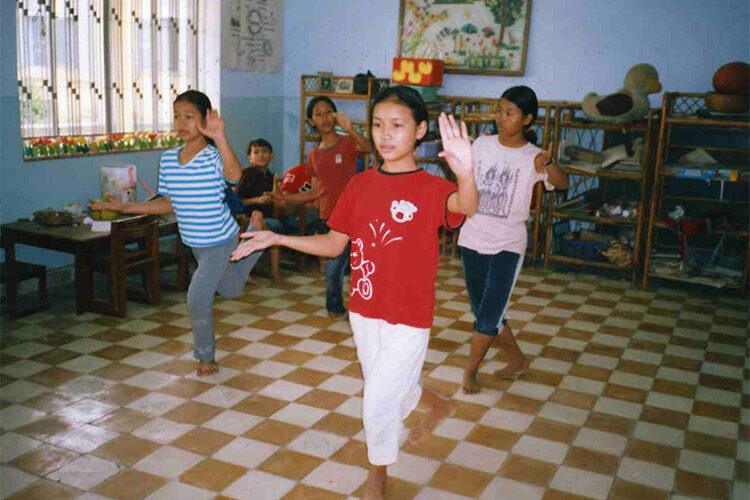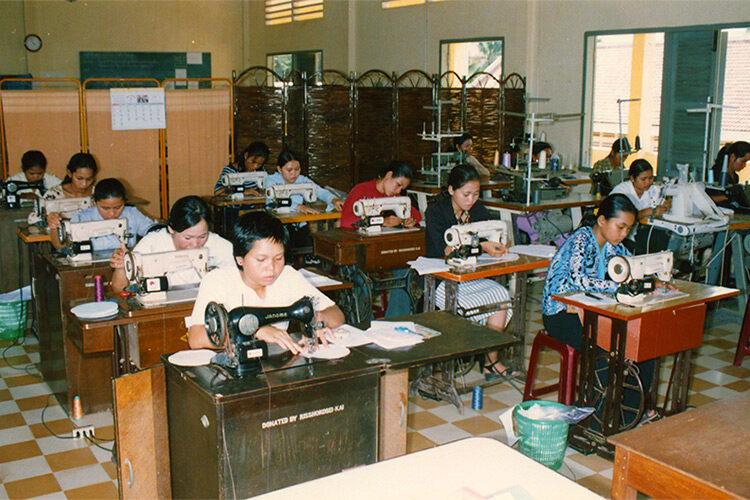 Cambodia
Cambodia
Following reconstruction projects after the civil war, we are supporting the development of infrastructure for early childhood education and the expansion of lifelong learning opportunities.
- TOP
- What We Do
- Cambodia
Background of Activities
As Cambodia’s economy has developed since the three-decade civil war, the economic disparities between urban and rural residents have grown, with the majority of illiterate children and adults living in rural areas. About 65 percent of elementary schools operate with two shifts, morning and afternoon, due to a shortage of classrooms.
What We Do
In farming areas with severe poverty and high illiteracy, we help to develop infrastructure for early childhood and primary education, as well as to expand lifelong learning opportunities.
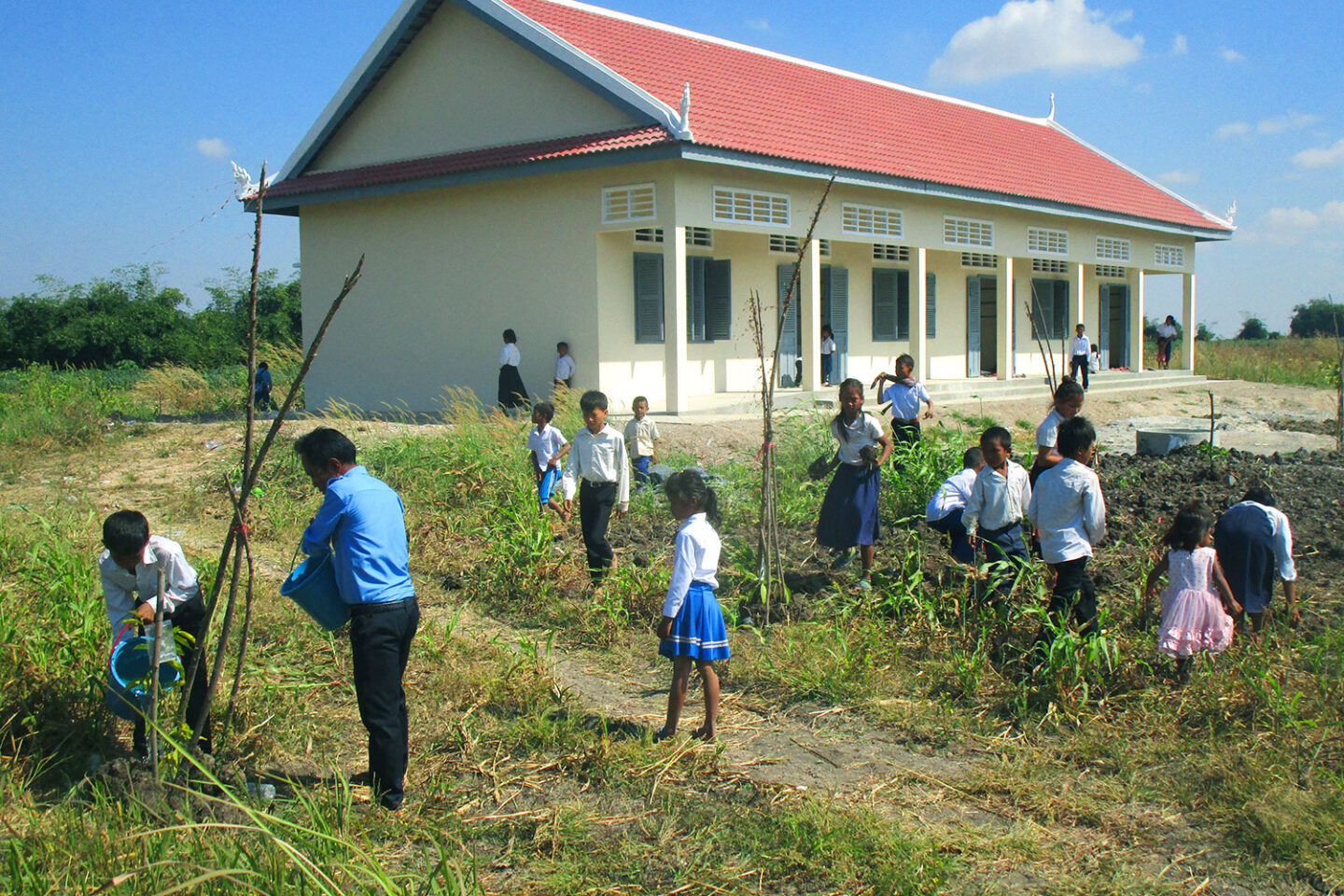
We launched our school construction project in 1991 to promote the settlement of returning refugees and internally displaced people. To create spaces where children can enjoy learning and look forward to a bright future, we select school sites with the Provincial Office of Education and then build schools, involving local people in the construction process, from the planning phase to construction work. We built over 280 schools by the end of 2020.
* The project was renewed as Dream Primary (Elementary) School Project in 2012.
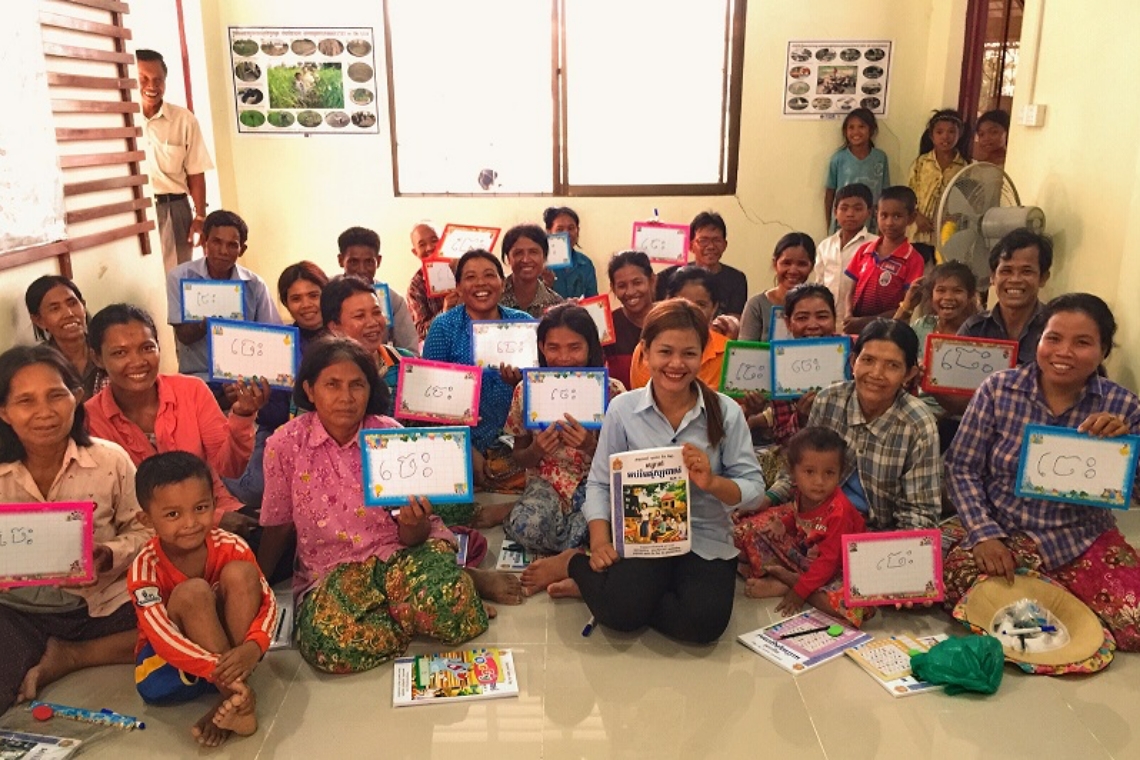
Many of the rural residents who missed educational opportunities due to the civil war have difficulty reading and writing, and as a result, struggle to accomplish things that are necessary for their daily lives. We build community learning centers (CLCs) that function as lifelong learning hubs where everybody, from children to adults, can learn. We promote literacy by providing residents with opportunities to learn to write and read on a daily basis through library and other activities that we hold at these libraries. According to residents’ needs, we also actively hold literacy classes, farming and health training for better lives, and sporting and cultural events. Our fun, comfortable, and practical programs have been helping residents live on their own.
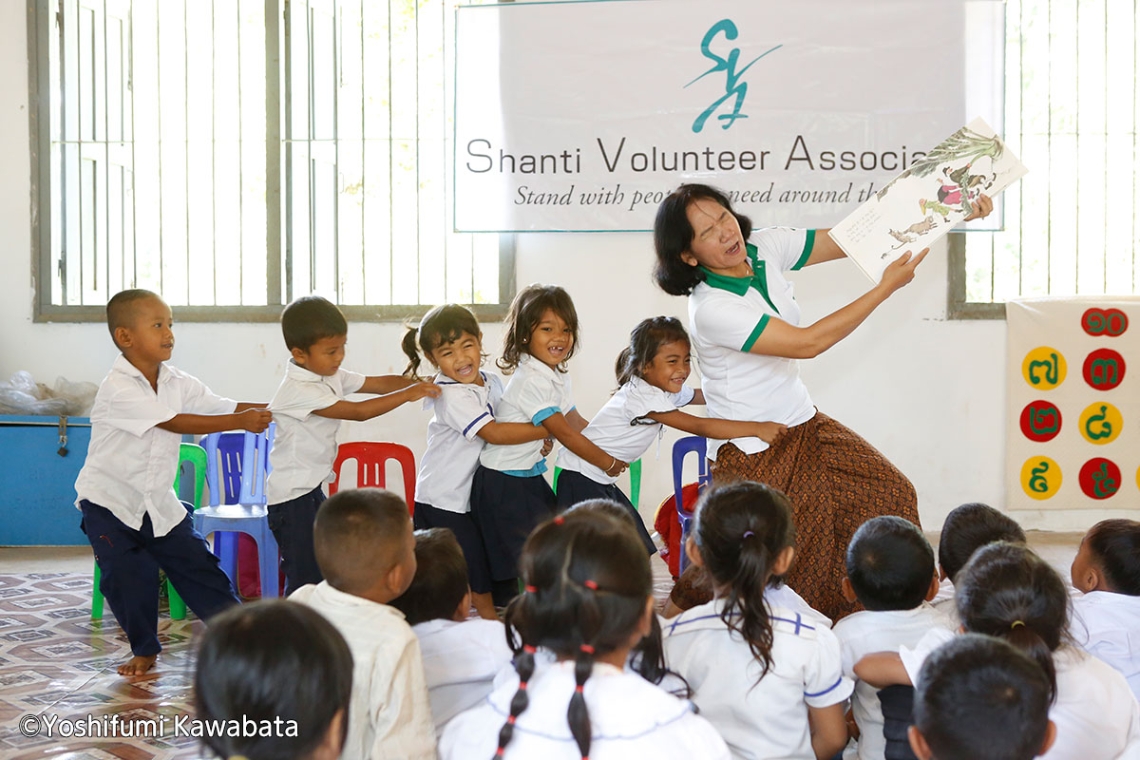
Early childhood education has been in the global spotlight as a way to create environments where children can continuously receive education so they can escape poverty. In Cambodia, the number of children who attend kindergarten remains low, and a lack of appropriate early childhood education and childcare to promote young children’s healthy development is negatively affecting primary education. With the aim of creating kindergartens where children can learn though fun activities and experiences, we train teachers, utilizing SVA’s experience of conducting school library activities. The project helps teachers improve the quality of early childhood education with effective teaching methods (story time, educational material preparation, playtime activities, event planning), as well as engaging classroom environments for young children.
Activities So Far
When we opened our office in Cambodia in 1991, people were mentally exhausted due to political instability and the civil war. Against that backdrop, we worked with local people and education authorities to carry out our projects, including library activities and school construction.
